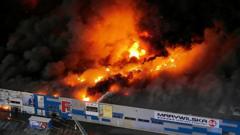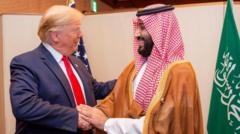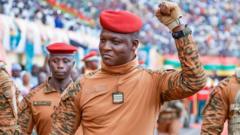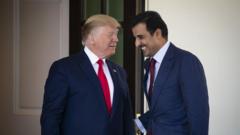With tensions surrounding Russia's actions in Ukraine, U.S. intelligence officials must articulate their stance on President Vladimir Putin, contrasting established assessments of his ambitions with a growing narrative from Trump’s aides that seeks to frame him as a potential partner.
Intelligence Community at a Crossroads: Evaluating Russia's Role under Trump

Intelligence Community at a Crossroads: Evaluating Russia's Role under Trump
As intelligence heads prepare to brief Congress, they're torn between traditional views of Russia as a threat and the evolving narrative of partnership.
As U.S. intelligence officials gear up for their first public "Worldwide Threat Assessment" during President Trump's second term, they're confronted with a significant dilemma. They must decide whether to uphold their longstanding evaluation of President Vladimir V. Putin as a formidable threat to both Ukraine and U.S. interests or align their statements with a burgeoning narrative from Trump and his associates that seeks to portray Putin as a viable ally.
In a recent interview, Steve Witkoff, a prominent figure in Trump's circle and designated envoy for relations with Russia, expressed a perspective that starkly contrasts the predominant views within U.S. intelligence. Witkoff’s comments, made on Tucker Carlson’s show, pushed back against European apprehensions regarding Russia's tenuous adherence to any potential cease-fire, labeling such fears as overly cautious and unrealistic. He challenged the notion that we need to embody the fierce resolve of historical figures like Winston Churchill in addressing Russian actions, stating, “I think that’s preposterous.”
This debate over Russia's representation in American policy is complicated by Witkoff's growing adoption of Russian viewpoints, which complicates the intelligence community's established understanding of Russian motives. As President Trump’s administration evolves, the intelligence leaders face pressure to reconcile their insights with the prevailing political narrative that seeks a reset in U.S.-Russia relations.
The upcoming assessment will not only influence immediate policy regarding Ukraine but will also shape the broader contours of U.S. foreign policy within the context of superpower competition. As Russia's actions draw increasing scrutiny, the intelligence community must navigate the delicate balance between transparency about threats and the political desires of the administration, reflecting an unprecedented moment in U.S. governance.




















